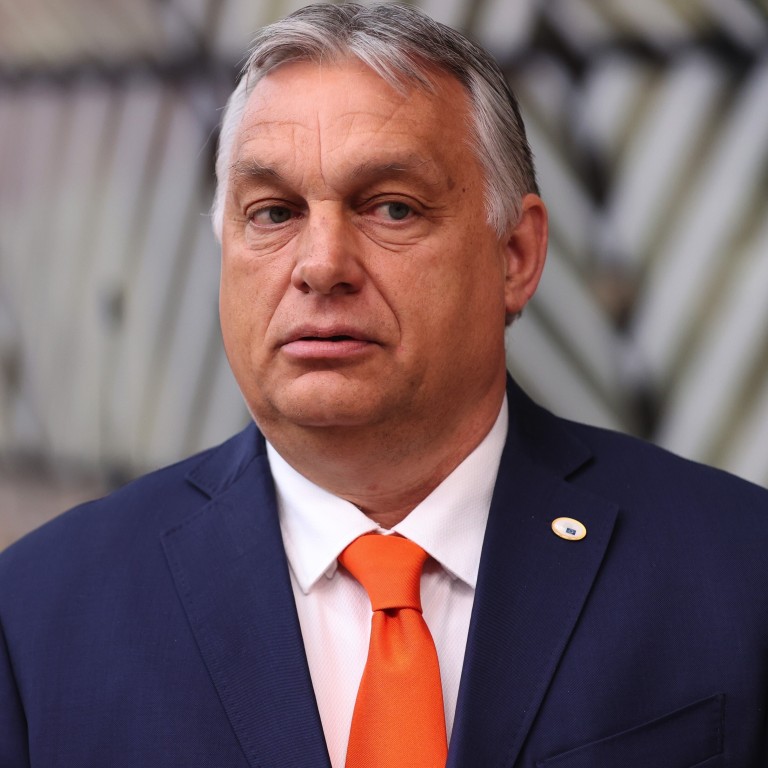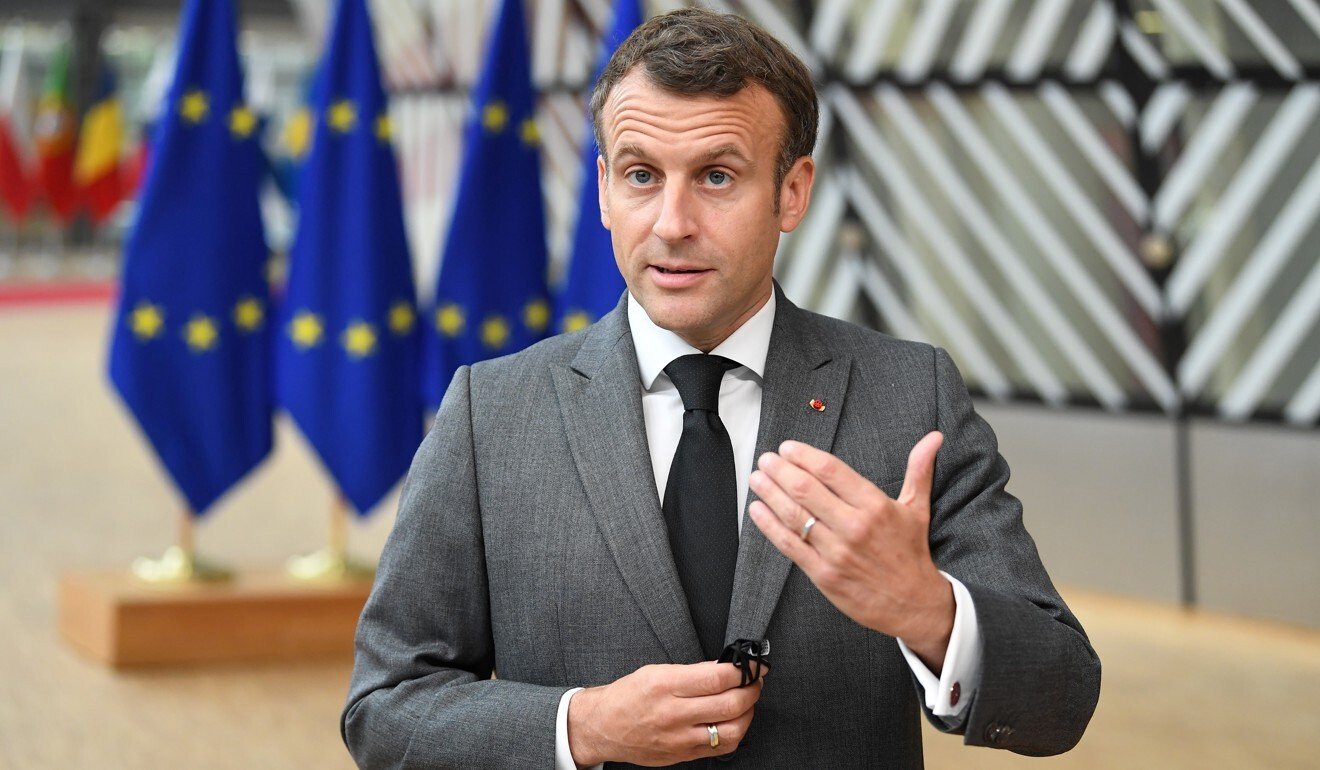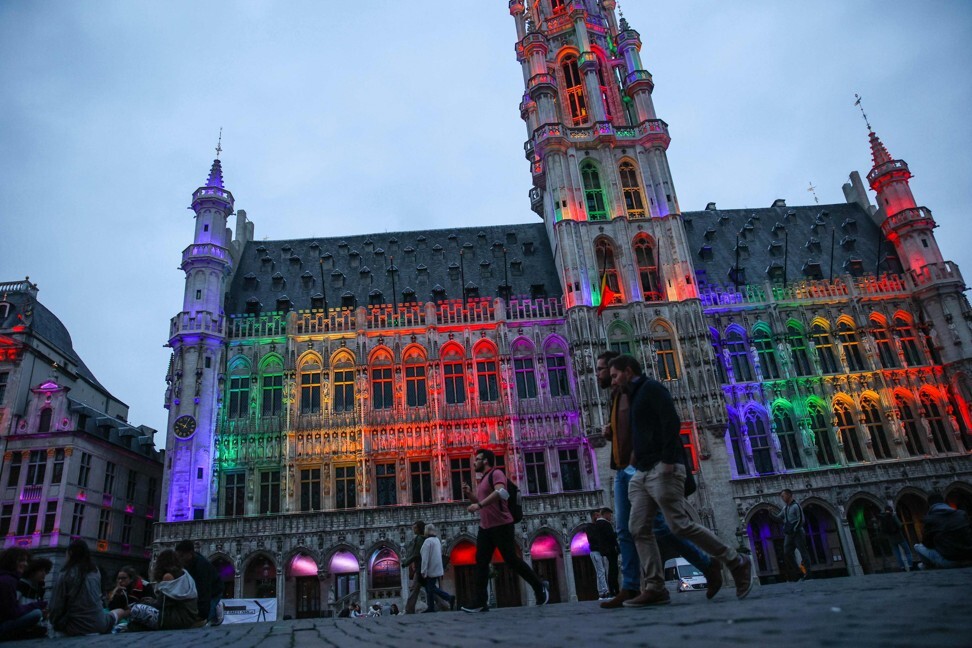
Hungarian PM Viktor Orban defends anti-gay law after arriving at EU summit
- Some EU leaders following Orban along the red carpet into the summit chamber were openly scathing about the legislation
- However, Europe’s football governing body rejected a plan to light up a stadium in rainbow colours for Germany vs Hungary match on Wednesday
“This is not against homosexuality, any sexual interference. It’s not about homosexuals,” said Orban.
Leaders from 17 EU countries on Thursday signed on to a letter that, although not directly mentioning Hungary, deplored “threats against fundamental rights, and in particular the principle of non-discrimination on grounds of sexual orientation”.
It came on the heels of a more explicit joint declaration earlier this week by the same countries, including heavyweights Germany, France, Italy and Spain, which raised “grave concerns” over the Hungarian law.

An EU official said the burgeoning debate about Hungary’s law had become “quite important” and would likely be chewed over during a working dinner.
Some EU leaders following Orban along the red carpet into the summit chamber were openly scathing about the legislation.
“The Hungarian authorities are transgressing a fundamental value of the European Union in terms of the measures it is adopting,” Irish Prime Minister Micheal Martin said. “We will be articulating very strongly our view on that this evening.”
Luxembourg’s Prime Minister Xavier Bettel said he would tell Orban “his comments and the laws he’s had adopted are unacceptable”.
Uefa vetoes illuminating Munich stadium in rainbow colours at Euro 2020 football match
French President Emmanuel Macron was more measured, saying he was “always wary” of demanding another EU country withdraw legislation.
“But I will defend our values and I would say that the law … doesn’t seem to me in line with our values,” he said, adding that he hoped “dialogue” with Orban would result in the law being changed.
German Chancellor Angela Merkel, who had previously called the Hungarian law “wrong”, made no mention of it as she arrived and gave a rundown of the summit’s “full agenda”.
European Commission chief Ursula von der Leyen on Wednesday said the legislation “clearly discriminates against people on the basis of their sexual orientation” and said her executive would challenge its legal basis.
Orban, however, was dismissive of the onslaught, accusing EU leaders of not reading the text of the law.
He said that, if it were raised, he would tell them “it’s about how a child learns about sexuality, which is in any case a difficult and complicated question, and decisions about that are exclusively the business of parents”.

“We will talk about how we can respond to [Russian] provocations and how to maybe create formats for talks,” Merkel said.
A less convinced Latvian Prime Minister Arturs Krisjanis Karins said: “I see difficulties in it … The Kremlin does not understand this kind of politics.”
The EU’s response to the coronavirus pandemic also featured on the agenda, though with less urgency than in summits of previous months.
From Putin to Orban: using fear to turn democracy on its head
Merkel said she was “worried about the Delta variant” which was starting to take hold in European Union countries.
The European Centre for Disease Prevention and Control said this week the variant was likely to account for 90 per cent of new cases in the EU by the end of August.
Merkel said she would press for “an even more coordinated way” in limiting the arrival of people from countries where Delta was dominant.
This could impact those wanting to visit Europe from former EU member Britain, which is in the grip of a steeply increasing number of Delta infection cases.

.png?itok=arIb17P0)